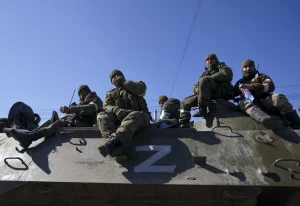
Russia's full-scale war against Ukraine puts 323 million people around world at risk of starvation - Borrell
Russia's war of aggression against Ukraine has caused a food crisis, as a result - more than 323 million people around the world are at risk of starvation, and about 1.2 billion more are experiencing hardship due to rising prices.
The European External Action Service shared the report with reference to EU High Representative Josep Borrell, who spoke at the G20 foreign ministers' meeting in Bali.
"Russia’s war of aggression against Ukraine is dramatically aggravating the food crisis. In just 2 years, the number of seriously food insecure people in the world had already doubled from 135 million before the COVID-19 pandemic to 276 million early 2022, and 323 million today. Now, with this unjustified and unprovoked, 1.2 billion people - one in six of the world’s population - are severely exposed to the combination of rising food prices, rising energy prices and tightening financial conditions," said a senior EU representative.
Russia blocks 20 million tons of grain in granaries - this is an attempt to use food as a weapon in the war not only against Ukraine, but also against the world. In particular, Africa, where many countries depend on the supply of grain and fertilizers from our country.
"The crisis is entirely caused by Russia’s actions: it has invaded a breadbasket of the world and it has turned the shipping lanes of the Black Sea into a war zone. There is an absolute urgency to act," Borrell added.
The EU's efforts to solve this crisis are focused on four areas:
-
Solidarity. The EU has mobilized more than EUR 7 billion by 2024 for the global response to food insecurity. Another priority is to support the availability of products by maintaining the macroeconomic stability of vulnerable countries.
-
Increasing food production. The EU has abolished all restrictions on the export of agricultural goods to Europe.
-
Revival of trade. The EU has made some progress in transporting grain by alternative routes through EU-led 'corridors of solidarity'. In June, 2.5 million tons of grain were exported, while in April the volume of exports amounted to only 1 million tons. However, this way is 'expensive and slow'.
-
A multi-stakeholder approach within the framework of the UN Global Crisis Response Group.
"The green energy transition will be a key remedy for sustainable, and affordable energy worldwide. This crisis will force us to boost and accelerate this transition. We will also diversify energy supply by engaging in hydrogen partnerships with reliable partners. An even quicker answer to many of these issues remains in the hands of one man: President Putin, who should stop this senseless war and avoid a global food and energy calamity," Borrell stressed.
- News













































